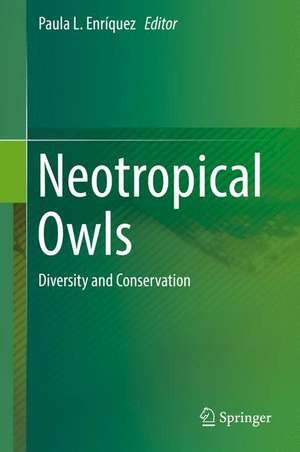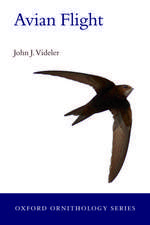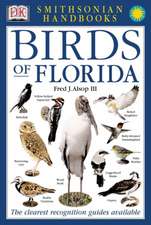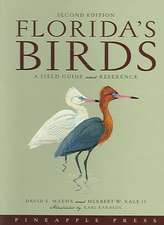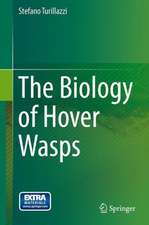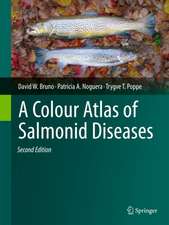Neotropical Owls: Diversity and Conservation
Editat de Paula L. Enriquezen Limba Engleză Hardback – 9 aug 2017
| Toate formatele și edițiile | Preț | Express |
|---|---|---|
| Paperback (1) | 966.14 lei 38-44 zile | |
| Springer International Publishing – 22 aug 2018 | 966.14 lei 38-44 zile | |
| Hardback (1) | 1086.79 lei 38-44 zile | |
| Springer International Publishing – 9 aug 2017 | 1086.79 lei 38-44 zile |
Preț: 1086.79 lei
Preț vechi: 1429.98 lei
-24% Nou
Puncte Express: 1630
Preț estimativ în valută:
207.98€ • 215.82$ • 173.84£
207.98€ • 215.82$ • 173.84£
Carte tipărită la comandă
Livrare economică 13-19 martie
Preluare comenzi: 021 569.72.76
Specificații
ISBN-13: 9783319571072
ISBN-10: 3319571079
Pagini: 670
Ilustrații: XIV, 670 p. 190 illus., 102 illus. in color.
Dimensiuni: 155 x 235 mm
Greutate: 1.27 kg
Ediția:1st ed. 2017
Editura: Springer International Publishing
Colecția Springer
Locul publicării:Cham, Switzerland
ISBN-10: 3319571079
Pagini: 670
Ilustrații: XIV, 670 p. 190 illus., 102 illus. in color.
Dimensiuni: 155 x 235 mm
Greutate: 1.27 kg
Ediția:1st ed. 2017
Editura: Springer International Publishing
Colecția Springer
Locul publicării:Cham, Switzerland
Cuprins
Chapter 1. Introduction: The Birds in the Neotropical Region.- Chapter 2. A review of systematics and taxonomy of Neotropical owls (Strigiformes).- Chapter 3. The Owls of Argentina.- Chapter 4. The Owls of Belize.- Chapter 5. The Owls of Bolivia.- Chapter 6. The Owls of Brazil.- Chapter 7. The Owl of Chile.- Chapter 8. The Owls of Costa Rica.- Chapter 9. The Owls of Colombia.- Chapter 10. The Owls of Ecuador.- Chapter 11. The Owls of El Salvador.- Chapter 12. The Owls of French Guiana.- Chapter 13. The Owls of Guatemala.- Chapter 14. The Owls of Hispaniola and Puerto Rico.- Chapter 15. The Owls of Mexico.- Chapter 16. The Owls of Nicaragua.- Chapter 17. The Owls of Panama.- Chapter 18. The Owls of Paraguay.- Chapter 19. The Owls of Suriname.- Chapter 20. The Owls of Uruguay.
Notă biografică
Paula L. Enriquez received her Bachelor’s Degree in Biology from the National University of Mexico (UNAM), her Master’s Degree in Wildlife Management from the National University of Costa Rica (UNA), and her Doctorate Degree in Animal Science from the University of British Columbia in Canada. Her main focus has been on the ecology and conservation of terrestrial birds, especially nocturnal raptors. She has collaborated with other scientists on several projects in Southern Mexico, Veracruz, Quintana Roo and Chiapas concerning both aquatic and terrestrial birds, and has published several scientific papers and outreach papers. She has presented papers on her research in both international and national congresses, guided and supervised undergraduate and graduate students in studies of bird ecology and habitat selection, studies of hummingbirds’ distribution in different habitats, diurnal raptors ecology, and biology of endangered bird species in the highlands, and studies of owl communities in tropical natural reserves. She has several projects about the study of endangered eagles as well as other endangered avian mountain species. Her projects have been funded by USFWS, Idea Wild, CONABIO, CONANP, and others. Since 1996 she has been a researcher and professor in the Department of Biodiversity Conservation in El Colegio de la Frontera Sur. She has been a recognized as a national researcher since 2010 and recently has become the Chief Editor for a Mexican Ornithologist Journal.
Textul de pe ultima copertă
This book presents a comprehensive biological and ecological information about owls in the neotropic area. In addition the book covers topics such as threats and conservation strategies for these nocturnal birds of prey from 18 Neotropical countries. Owls are a good example of diversification processes and have developed evolutionary characteristics themselves. These species are found almost everywhere in the world but most of them are distributed in tropical areas and about a third of them live in the Neotropics. This biogeographic region has a high biodiversity and even share lineages of species from other continents because at some point all were part of Pangea. Although we still have much to know and understand about this diverse, scarcely studied and threatened group this work aims to be a precedent for future and further research on the subject.
Caracteristici
This book integrates the current knowledge for owls' distribution and ecology in each Neotropical country. This books is addressed to researchers and students interested in the diverse biodiversity of Neotropic Owls. Each chapter analyse the diversity, distribution and conservation status of each owl species in 18 Neotropical countries. Includes supplementary material: sn.pub/extras Includes supplementary material: sn.pub/extras
